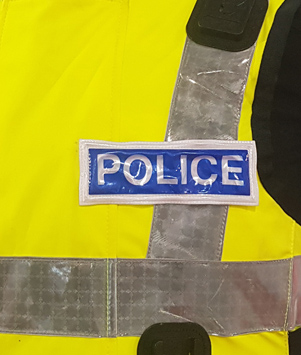The Government has hailed a National Partnership Agreement to encourage police and hospitals to agree to the principle of Right Care, Right Person (RCRP). Created by Humberside Police in 2019, its aim is for police control rooms to identify the right agency to deploy at the outset when responding to 999 calls about those experiencing a mental health crisis.
Under new local plans, when the threshold for police involvement is not met, partners will agree the best health-based approach; for instance in Humberside, a new dedicated response vehicle with mental health staff on board has been attending calls and providing support, alongside other community-based mental health services.
How Humberside have gone about ‘Right Care, Right Person’ as part of their efforts to turn around poor performance (as identified by HM Inspectorate of Constabulary) was aired at the Emergency Services Show in September 2022, and featured in the January print edition of Professional Security Magazine. Briefly put, police complain that they have been treated as the emergency service of last resort, responding to a 999 call of someone being anti-social or threatening or doing a crime, yet with a mental illness background. Police – as much as the health services, struggling to manage cuts in the 2010s – complain that they are not trained responders to cases of mental ill-health. Or as Chief Constable Andy Marsh, CEO at the College of Policing, has put it, ‘attending mental health calls is not always appropriate’. The healthcare sector on Humberside when faced by the force’s moves, as nationally, complain that they too are stretched.
The national police chiefs body the NPCC, and the College of Policing, have developed a national toolkit to support local implementation across England, including decision-making in relation to the threshold for police response. NHS England is also co-producing guidance.
What they say
Home Office Policing Minister Chris Philp said: “We have listened to the concerns raised by police leaders about the pressures that mental health issues are placing on policing which takes officers’ time away from preventing and investigating crime. This landmark agreement will see those in a mental health crisis receiving the most appropriate treatment in the right environment by healthcare professionals and free up considerable amounts of police time to focus on keeping our communities safe.”
And Minister for Mental Health Maria Caulfield said: “Anyone going through something as awful as a mental health crisis deserves to know they’ll receive the best possible emergency response. It’s vital the right people who are trained and skilled to deal with the situation are on the scene to assist. That’s why this national agreement is so important. It will ensure the most appropriate health care is provided as quickly as possible.
“We’re going further and faster to transform our mental health services, with £2.3 billion extra funding a year by March 2024 so two million more people can get the support they need – and £150 million to build new and improved mental health urgent and emergency care services.”
For the policy paper visit the Home Office website.










